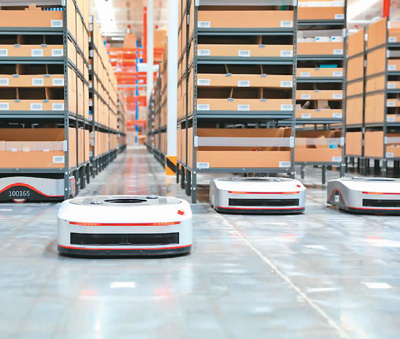
Robots sort parcels in JD's warehouse (Photo: People's Daily)
It took 10 workers 8 hours to sort about 10,000 to 15,000 parcels, and just two hours, by a warehouse robot. This scenario has already become a reality in logistics services.
On the customer end, big data makes claiming of parcels more convenient, through means such as facial recognition technologies. A community in south China’s Shenzhen city has adopted facial recognition technologies that allow residents to claim their parcels by having their faces scanned, in case they forget the passwords.
The use of AI and big data in the delivery industry could better allocate relevant resources and services and help enterprises become intelligent and digital, industry insiders said at the 2019 World Artificial Intelligence Conference (WAIC). It could also deliver higher-quality products and services to customers and satisfy their demands from all aspects.
Researchers have estimated that as the logistics efficiency within the European Union rises by 10 percent to 30 percent, about 100 to 300 billion euros of costs will be saved.
China will start building about 15 national logistics hubs this year, according to an implementation plan released by the National Development and Reform Commission and the Ministry of Transport.
The move will boost the coordination of modern logistics and manufacturing, gather logistics resources together, improve efficiency, reduce costs, improve competitiveness, and promote the development of the manufacturing industry, according to an analyst.


